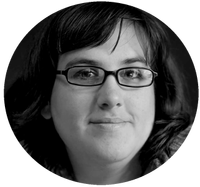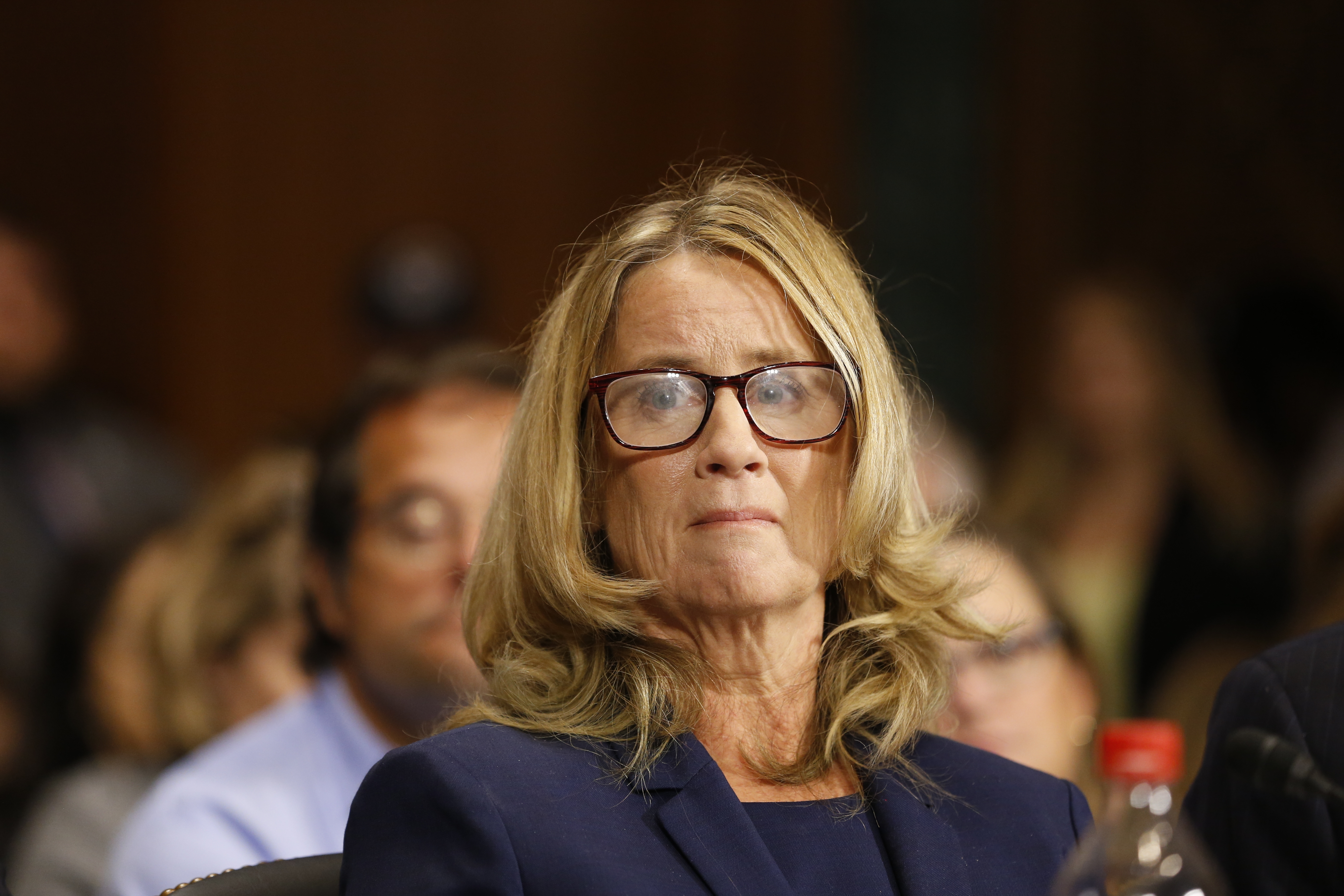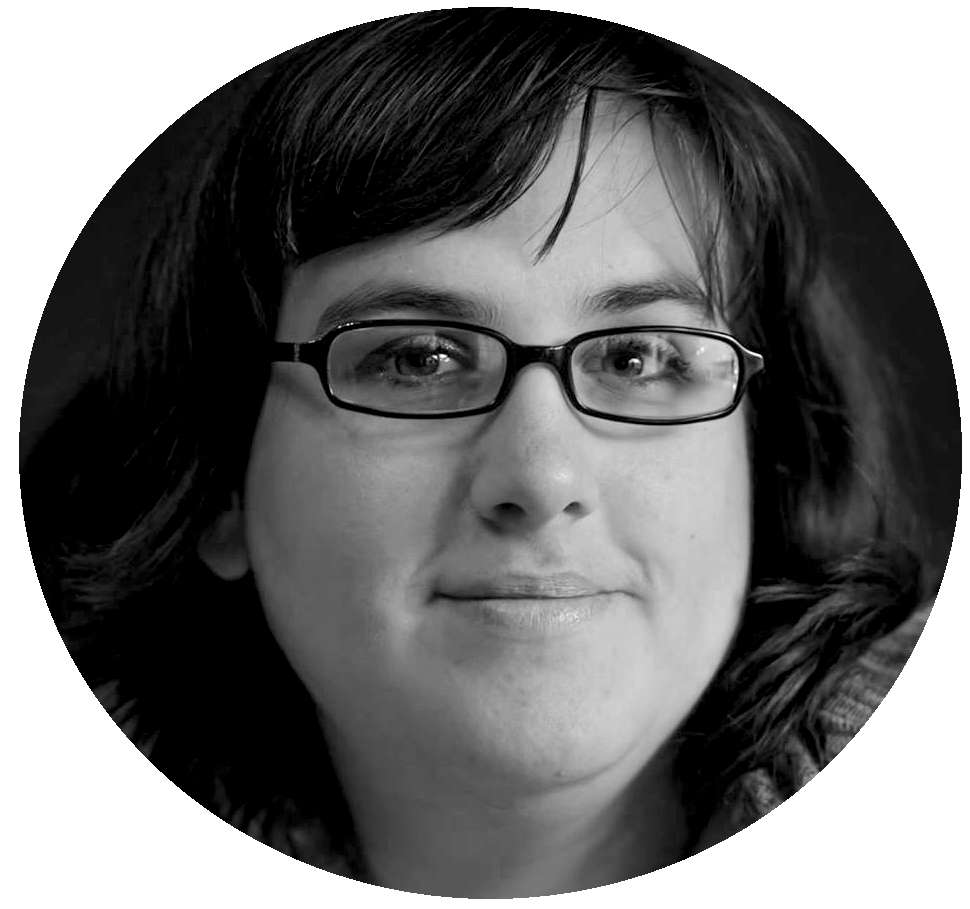The survivor's rage
Christine Blasey Ford's testimony has let loose a seismic swelling of grief and horror and incandescent anger that isn't subsiding any time soon


A free daily email with the biggest news stories of the day – and the best features from TheWeek.com
You are now subscribed
Your newsletter sign-up was successful
Several years ago, as I sat outside my workplace handing out newsletters, a woman approached me. With a bright voice, she asked if I remembered her. Of course, I remembered her: Her son molested me when I was in first grade. He was older than me, and so much stronger; he could pin me to the floor with one leg. He'd grope and fondle me with a furtive clumsiness, pulling at the tenderest parts of me. There on the street with this woman from my past, I could barely speak, or even think, through the sirens roaring inside my head. I told her that no, I didn't remember her. I would spend the rest of the afternoon in my office, door closed, sitting on the floor, waiting for my shock and rage and grief to subside into a merciful numbness.
I've thought about that moment a lot recently. It fell from the closed cupboard of my memory and shattered on the floor as I watched Christine Blasey Ford raise her hand and swear an oath to tell the truth about her allegations of sexual assault against Brett Kavanaugh. I listened to her recount the blunt terror of being held down, of fearing for her life, and felt her pain as she described the laughter, the hideous laughter, and how it reduced her to nothing but a body, a vehicle for someone else's amusement. I knew her fear in sharing those memories, as intimately as I've known my own fear of sharing my memories — because, for so long, telling my story has been like swinging on a trapeze without a net, extending my hands, only to find that there's no other bar, no other set of hands, to hold on to.
Even though I told my loving mother what was happening to me, and she believed me (which, unfortunately, makes me luckier than many survivors), she never confronted the boy's mother. Pressing the issue was too uncomfortable, too unfathomable. Better to let it be, to swallow it down. So, I did. But for the first time in my life, everything that I have swallowed down is erupting openly, unapologetically, across the public sphere in the wake of Ford's testimony. Even if Kavanaugh is confirmed to the highest court in the land, Ford's testimony was not made in vain. It has let loose a seismic swelling of grief and horror and incandescent anger, a dark miracle of collective rage that isn't going away.
The Week
Escape your echo chamber. Get the facts behind the news, plus analysis from multiple perspectives.

Sign up for The Week's Free Newsletters
From our morning news briefing to a weekly Good News Newsletter, get the best of The Week delivered directly to your inbox.
From our morning news briefing to a weekly Good News Newsletter, get the best of The Week delivered directly to your inbox.
Of course, it often feels like it's been for nothing: Clarence Thomas sits on the Supreme Court despite Anita Hill's allegations of sexual harassment nearly 30 years ago. Kavanaugh will probably join him there. Donald Trump, a man who bragged, on tape, about doing to women what my abuser did to me, sits in the Oval Office. It's hard to feel like time is truly up when the Trumps and Kavanaughs get to bully and bluster their way to power; when the Louie CKs and the Matt Lauers get to plan their stealth comebacks; and when a too-broad swath of our culture still wrings hands and gnashes teeth over the fate of "nice" young white boys, whose bright futures shouldn't be derailed because of a "mistake," or two, or three (that we know of).
In a moment of justifiable anguish over the probability of a Justice Kavanaugh, MSNBC host Chris Hayes tweeted, "Dr. Blasey Ford's worst fear, as she said, is that she would come forward, upend her life, irrevocably change it, and be annihilated. For nothing." But it's not for nothing: Ford has given a face, and a voice — trembling, but resolute — to the anguish many of us have lived with, silent and alone, for far too long. Just as Hill gave a face and a voice to it decades before. We say that time has vindicated Hill, but time is not a vindicating or propulsive force on its own: That vindication was birthed in rage and grief, and it was propelled by years and years of constant agitation, of moving the culture, inch by painstaking inch.
On Friday morning — the day after Kavanaugh and Ford both testified, and the day the Senate Judiciary Committee still recommended his nomination go forward for a vote — my entire body vibrated with the same fear that filled me when I was near my abuser. And I suspect it was the same for many other survivors. I heard it in Maria Gallagher's voice when, along with Ana Maria Archila, she confronted Sen. Jeff Flake (R-Ariz.) in an elevator and challenged him to look at her and tell her that her assault doesn't matter — because letting a man like Kavanaugh sail through to confirmation was the same damn thing.
I don't know if their words prompted Flake to demand that FBI investigation, or if that FBI investigation will even matter (reporting already indicates that President Trump is limiting its scope). But here's what I do know: Those women spoke pain to power. They spoke rage to power. They spoke the truth — a truth that rallies in the Capitol, fills its hallways and its streets; a truth that blazes across the internet; a truth that is being shared, in many cases for the first time, in hard conversations across the country. When I was a teenage girl, I never imagined that "Believe Survivors" could ever be a call to arms — it was always just a pipe dream. But the backlash was inevitable, and it is here.
A free daily email with the biggest news stories of the day – and the best features from TheWeek.com
These past few days — these past two years — have been shatteringly painful for survivors like me. Still, they have shown me I am not alone in my pain, and not alone in my resolve to be strong in those shattered places. These conversations we're having about abuse, survivorship, and power have cracked open the notion that we can be defined by the things that have happened to us, without being doomed by them. I can be an accomplished woman and a woman who can't breathe in closed-in spaces. If I could somehow go back in time, I'd tell my abuser's mother that I know exactly who she is, and I have a message for her son. I'd want her to tell him that I used to measure my victories over him, and what he'd done to me, in granular ways — every positive sexual experience, every time I trusted a man, every time I showed even the smallest act of kindness and grace toward myself. But now, I am part of a great wave, a fist of a current in a rising swell of righteousness that will come crashing down on everything that entitled him to hurt me — until it is broken up and washed away.
Laura Bogart is a featured writer for Salon and a regular contributor to DAME magazine. Her work has appeared in The Atlantic, CityLab, The Guardian, SPIN, Complex, IndieWire, GOOD, and Refinery29, among other publications. Her first novel, Don't You Know That I Love You?, is forthcoming from Dzanc.
-
 9 products to jazz up your letters and cards
9 products to jazz up your letters and cardsThe Week Recommends Get the write stuff
-
 AI surgical tools might be injuring patients
AI surgical tools might be injuring patientsUnder the Radar More than 1,300 AI-assisted medical devices have FDA approval
-
 ‘Zero trimester’ influencers believe a healthy pregnancy is a choice
‘Zero trimester’ influencers believe a healthy pregnancy is a choiceThe Explainer Is prepping during the preconception period the answer for hopeful couples?
-
 The billionaires’ wealth tax: a catastrophe for California?
The billionaires’ wealth tax: a catastrophe for California?Talking Point Peter Thiel and Larry Page preparing to change state residency
-
 Bari Weiss’ ‘60 Minutes’ scandal is about more than one report
Bari Weiss’ ‘60 Minutes’ scandal is about more than one reportIN THE SPOTLIGHT By blocking an approved segment on a controversial prison holding US deportees in El Salvador, the editor-in-chief of CBS News has become the main story
-
 Has Zohran Mamdani shown the Democrats how to win again?
Has Zohran Mamdani shown the Democrats how to win again?Today’s Big Question New York City mayoral election touted as victory for left-wing populists but moderate centrist wins elsewhere present more complex path for Democratic Party
-
 Millions turn out for anti-Trump ‘No Kings’ rallies
Millions turn out for anti-Trump ‘No Kings’ ralliesSpeed Read An estimated 7 million people participated, 2 million more than at the first ‘No Kings’ protest in June
-
 Ghislaine Maxwell: angling for a Trump pardon
Ghislaine Maxwell: angling for a Trump pardonTalking Point Convicted sex trafficker's testimony could shed new light on president's links to Jeffrey Epstein
-
 The last words and final moments of 40 presidents
The last words and final moments of 40 presidentsThe Explainer Some are eloquent quotes worthy of the holders of the highest office in the nation, and others... aren't
-
 The JFK files: the truth at last?
The JFK files: the truth at last?In The Spotlight More than 64,000 previously classified documents relating the 1963 assassination of John F. Kennedy have been released by the Trump administration
-
 'Seriously, not literally': how should the world take Donald Trump?
'Seriously, not literally': how should the world take Donald Trump?Today's big question White House rhetoric and reality look likely to become increasingly blurred
